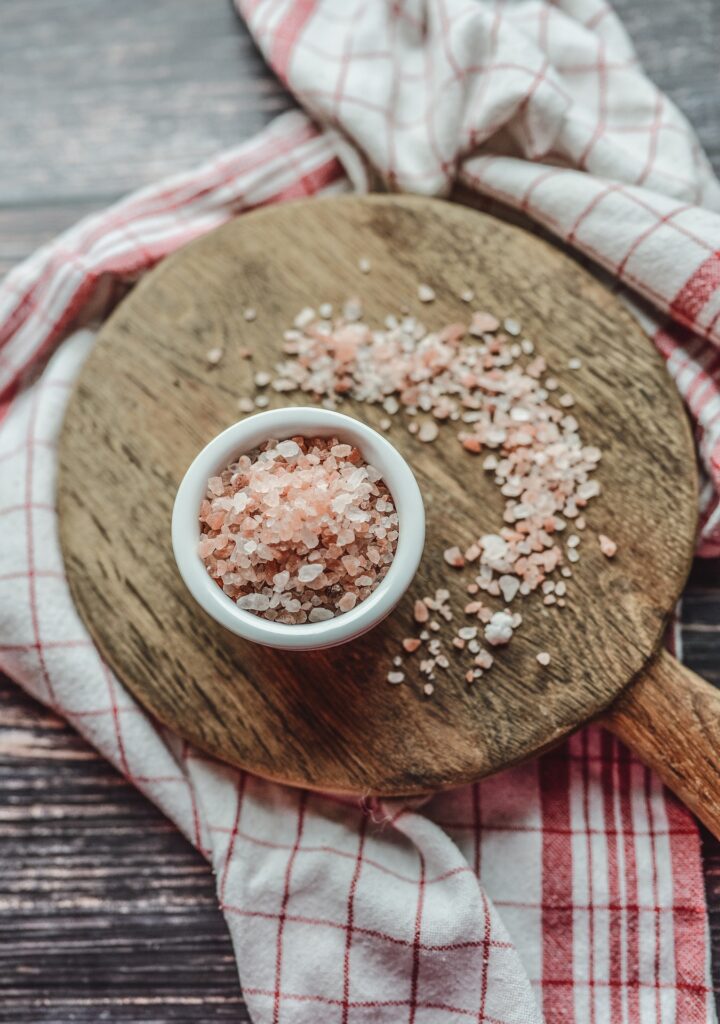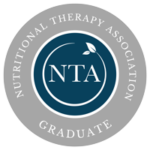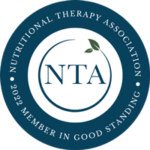“How do I start getting healthy?” Anyone ask themselves that? Or how about, “How do I even begin to start getting my kids healthy?!”
Lucky for you, there are a few easy steps you can start with to get on track with a healthy lifestyle. For you AND for your kids!
The things I talk about in this post really are the basic building blocks our bodies need to be able to function at their best. The best part, tackle one and move on to the next! You don’t have to do it all at once. Baby steps brings success! I promise, it’s not complicated, and you’re going to walk away feeling more empowered in taking control of you and your family’s health!
Start getting healthy with your food choices
There is no one size fits all diet. What works for one person, may not work for you. And most of the time, when someone is “dieting”, it doesn’t last anyways! Why? There’s many reasons, but a big one is because there’s too many restrictions! Count those calories, weigh that food, eat this food group but not that food group, carbs are bad, fats are bad, blah blah blah … No thank you!
There really is an easier way to start getting healthy.
As a disclaimer, I will say that there are times when a certain diet is right for a healing period. But that diet should only be for the short term to achieve the healing that’s necessary. Otherwise, the body misses out on other much needed nutrients and so starts the cycle of more problems.
A Nutrient-Dense Diet
So I’m not a fan of dieting in the terms we most often associate with the word “dieting”. But I am a fan of eating a nutrient-dense diet. I truly believe that when a nutrient-dense diet is the go to standard for us, we can reap the benefits of a healthy body and set our kids up for a healthier future … without counting calories or weighing our food.

But what does a “nutrient-dense” diet even mean?
It means consuming whole foods that are as close to how they appear in nature as possible. Less ingredients on labels. Fewer boxed items in our cupboards. Less packaged meals in the freezer. Less preservatives, additives and crazy long names we can’t pronounce. If you want an easy breakdown of what to look for on ingredients labels, check out this blog post.
What it looks like
What does that actually look like in our real day to day mom life?
Well, it doesn’t look like poptarts for breakfast. #sorrynotsorry.
A nutrient dense diet consists of quality protein, fats and carbs at each meal, and every person’s amount of each of those will vary depending on their individual needs. These are the basic building blocks every body needs to function at it’s best. You start getting healthy by being aware of the foods you feed yourself and your family.
Did you catch the important part up there, besides including protein, fats and carbs at each meal? Each person’s amount of those will vary. What works for Body Builder Bob, won’t work for the breastfeeding mama or the rambunctious toddler. So falling into a one size fits all diet approach, simply won’t fly. Stay away from those!
A nutrient dense diet consists of eating a variety of seasonal local fruits and veggies when possible. Not just the same fruits and veggies year round. Think, eat the rainbow … just not the skittles! This makes sure you’re also getting an array of vitamins and minerals which your body also needs to function.
This can be tricky with those picky toddlers, especially if they’ve had the standard American diet so far. Just remember to keep offering the healthy foods. It can take around 20 times of being exposed to a food before they’ll actually put it in their mouth. Keep at it, mama!

It also means making sure foods are properly prepared so our body can easily digest what they have to offer, like consuming soaked or sprouted nuts, seeds, grains and legumes.
If you’re able to, choosing grass-finished meats, pasture raised poultry and eggs or wild caught seafood is the best choice. Rising grocery costs make this hard for many of us, however. In that case, just do the best you can and choose a lean meat since fat is where all the toxins are stored for those animals. And maybe check with your neighbors that have chickens or cows to see if they’re selling the eggs or meat of their animals at a lower cost than the stores for a grass fed option.
Not every fruit or veggie has to be organic, either. You can read the EWG’s list of the “clean 15” and “dirty dozen” here. But remember, it’s much better to have the veggie and fruit even if it’s not organic than it is to not have it at all. It still has nutrients the body needs that the graham crackers just can’t offer.
But why does any of that really matter? Because when our body is given the proper fuel in its proper form, it can function at its best. Believe it or not, bloating, brain fog, and getting the shakes aren’t normal! Everything you eat is for your cells to use to help your body do what it’s supposed to do. So give it the good stuff! When you have toddlers to chase and teens to deal with we need our bodies functioning at top notch, am I right?!
The way you eat can help you start getting healthy
You can eat all the healthiest foods in the world, but if your body is unable to break down the nutrients and absorb what it needs, what good is it to even buy the healthy food? You’re just throwing money out the window.
Digestion is key to breaking down and absorbing the nutrients your body needs for every single cell to function properly. And what do those tiny cells make up? Our tissues and organs! What do those tissues and organs make up? Our body! We hear the saying “you are what you eat”, but it really would be better stated “you are what your body absorbs.”
We often take for granted the simple step of actually sitting down for a meal and chewing our food. Instead we typically inhale it on the go in one form or another. Or we’re picking the leftovers off the kids plates between cleaning the kitchen and nap times. Guilty as charged over here!
The science behind it
The simple step of slowing down and chewing is what sets our body up for being able to get everything we can out of the foods we’re eating. When we slow down our bodies and mind before eating, it turns off our fight or flight nervous system and allows our rest and digest nervous system to kick on. It’s a legit science backed system our body is set up to do (sympathetic vs parasympathetic). This allows digestive organs to release their digestive enzymes that breakdown food properly.
And when we chew our food thoroughly, the breakdown process is much easier for our digestive system to absorb all those nutrients it needs. When we swallow chunks they stay in our digestive system longer as the body tries to break them down. They start to ferment causing gas, bloating, and other unwanted digestive symptoms.
And ultimately our body misses out on nutrients as it can’t fully break chunks of food down in the system before moving it out. Ever wonder why the kiddos have chunks of food in their poop?! Now you know! Remind them to chew their food really well. And keep reminding them. It’s not going to be a one and done thing.
The start to getting healthy is about less processed foods, slowing down, and chewing. Doesn’t seem too daunting, does it?
Let’s keep going because the next one affects a whole host of issues many of us deal with.
Start getting healthy by controlling blood sugar
Have you ever felt hangry? Days where you just feel tired and sluggish? Do you get shaky in between meals and need that quick pick me up candy bar? It’s a blood sugar issue, baby! And, no, you don’t have to be diagnosed as diabetic to have issues with blood sugar.

Many people have issues with blood sugar regulation and don’t even know it because it’s become “normal” to have symptoms of low energy, difficulty concentrating, weight gain, hormonal issues, blood pressure issues, digestive issues and more. But why should we care about blood sugar regulation? Because blood sugar affects so many different aspects of your body’s ability to function! Say what?
Here’s just a few in a nutshell:
- Blood sugar levels help in our bodies’ energy production and balance (say goodbye to that afternoon crash!)
- Even blood sugar levels maintain the tissue integrity of our organs and blood vessels (blood pressure issues, anyone?!)
- It helps balance hormones (think thyroid issues and mood swings, ladies!)
- It affects our brain health, our mood, our memory and our cognitive function (who doesn’t want to keep those things healthy?!)
Unfortunately, our typical American diet creates a drastic rise and fall of blood sugar levels instead of keeping them at a nice even level. Hence, the shakes and hangry feelings that come on and are subdued with that candy bar, but then leave you crashing just a few hours later. Then you need the afternoon coffee for another pick-me-up and crash again before the evening is over. The cycle is never ending unless we start getting the right foods in our body.
The trickle affect
With the constant up and down of blood sugar, your body is working double time to try to correct the blood sugar levels to get things back in balance. This taxes our pancreas, adrenal glands, and our liver. And when those are stressed out from having to fight the sugar highs and lows, other body systems start to become affected, creating even more unwanted symptoms of varying degrees! That’s why it’s important to start with a nutrient dense diet and proper digestion.
A majority of our health issues can be traced back to the ups and downs of blood sugar levels and the stress it causes on other body organs and systems. And this goes for the kids as well, not just us parents!
Are you starting to see a bit of a cascade effect happening when we don’t start with that nutrient dense diet and proper digestion?
Start getting healthy with good fats
Do any of you remember when the craze for low fat diets started? Can I just say that fats have been given a bad rep? At least, the good fats have. There are fats that aren’t good for you and more and more studies are looking into the long term effects of them on our bodies. What they’re finding doesn’t bode well for the common hydrogenated oils. Time to say goodbye to canola oil! (aaaand vegetable oil, soybean oil, margarine, plant-based butters and corn oil … just to name a few!)
But there are fats that are very good for you and your body actually needs them to function properly. Fats like avocado oil, coconut oil, olive oil, grass fed butter, eating the yolks with the eggs … shocker I know …. chia seeds, flax seeds, salmon and even more!
The skinny on fats
So what do these fats do then if they’re so good for you?
When we have the good fats in our body, that feeling of fullness lasts longer, which means less energy crashes, which means less snacking between meals. Fats help our blood sugar regulation! But they do so much more than that as well.

Here’s a list of what fats do for your body:
- They provide a source of longer lasting energy (start saying goodbye to fatigue!)
- They serve as a protective lining for the organs of the body (we need those vital organs protected!)
- They act as building blocks for cell membranes and hormones (this is why low fat diets are not helpful the majority of the time!)
- They aid in the absorption of the fat-soluble vitamins: A, D, E, and K (these are essential for your body!)
- They increase satiety (means less snacking between meals which equals less blood sugar ups and downs!)
- They make food taste good (enough said.)
- And they aid in the body’s inflammatory process (Some fats start the inflammatory process to start the healing cycle and others turn it off. We need both to be balanced!)
Someone please tell me why we’ve been told to avoid fats since they’re an essential part of our body’s ability to function? A nutrient dense diet includes healthy fats.
Don’t be afraid of the good fats. Your body depends on it. Your teenagers body depends on it. Your toddler’s body depends on it. Your baby’s body depends on it.
Eat the good fats.
Drink your water
We hear it all the time, but we’re terrible at actually doing it, aren’t we? I can’t tell you how many times I’ve filled up the kids water bottles numerous times only to realize halfway through the day that I’ve hardly made it through my first cup of coffee, now cold, much less drank any water!
I’ll list just a few ways water helps our body and hope it helps you drink more!
- Water helps remove the wastes and toxins from our body.
- It helps our body’s natural healing process.
- It helps cushion and lubricate our bones and joints.
- It improves oxygen delivery to cells.
- It aids in our digestive process, helps transport nutrients, and so much more.
Sometimes the way to get yourself to drink more water is to just find a water bottle you like. I have to have a water bottle with a straw. If I don’t, I find I don’t drink as much water. Why? I don’t know. But it works. So don’t be afraid to try a few different water bottle styles until you find one that helps you drink more often!
If water seems boring to you, throw some fruit in it and let it sit for a bit. Or put some cucumber slices and mint leaves in it. It doesn’t have to be just plain water. Find a way to perk it up that you like!
As for the kiddos, they’ll get so busy playing they’ll forget to drink. So when you remind them to drink, drink some yourself, too! Set a timer if you have to.
Start getting healthy with minerals
Minerals may not be something that people think about on a daily basis. More often you hear all about vitamins and often minerals get lumped into this category, though they’re very different. But since our bodies cannot make them and must obtain them through our foods, they’re very much worth discussing here as a building block to start getting healthy.
Okay, so our bodies need them, but why? What do minerals do that makes them so necessary?
Our body uses minerals to keep our bones, muscles, heart and brain functioning properly. They help with the contracting and relaxing of muscles, help regulate tissue growth, allow proper nerve conduction to happen, and help transfer nutrients to our cells.

Obviously, we need them!
Minerals also act as a cofactor to enzymes. Sounds fancy, doesn’t it? But what does it actually mean?
Enzymes are what help our body break down molecules into smaller ones so our body can use them, like breaking down food into glucose for cells to use as energy. Or like helping our liver break down toxins in the body. Without minerals, the enzymes can’t do their job, which in turn means our organs can’t do their job properly.
Just one example
One major mineral we all know about is calcium and how the lack of it affects older populations, mainly women.
It might shock you to know that many people actually get enough calcium in their diet, but they aren’t absorbing it properly! Their digestion may not be functioning properly or they may not be getting enough of the good fats in their diet to help transport that calcium to the cells that need it. They could be lacking in other vitamins (particularly Vitamin D) that helps their body utilize the calcium.
Hormonal imbalances, other mineral deficiencies, and stress all affect calcium’s ability to be absorbed.
If any of the topics I cover in this post are not functioning properly, then calcium absorption is going to be affected. If just one mineral is affected by something being out of whack then you can be sure other minerals are going to be affected as well. That’s why we need a nutrient dense diet to provide different minerals to our body. And we need proper digestion so we can absorb them so they can do their job.
Wait, did we just circle back to a nutrient dense diet and good digestion again?!
Sum it Up
Let’s do a quick recap for a minute:
- A nutrient dense diet gives our body the vital nutrients, vitamins and minerals it needs in order to function properly so we feel our best.
- Those nutrients are absorbed by a digestive system that works properly to help regulate blood sugar levels.
- Blood sugar levels affect our brain, mood, hormones, energy levels, and the integrity of our organs and blood vessels, just to name a few.
- When we have good fats in our diet, our energy levels stabilize and we feel fuller longer (thus helping blood sugar levels due to decreased snacking). They help with the inflammatory processes of our body, are the building blocks for our cells and hormones, and help our body absorb certain vitamins.
- Staying hydrated helps our body heal and helps transport the nutrients we get from a nutrient dense diet to all parts of our body.
- Minerals keep our bones, muscles, heart and brain functioning properly, and help our body in the digestive process and other vital organ functions.
When you start with a nutrient dense diet and proper digestion it’s much easier to stay healthy and feel your best.
If you or your kiddos aren’t feeling your best and have health issues, it’s never too late to start with the above steps to get on track.
If you feel like you need someone to dive deep with you into this and walk you through it step by step, head over here to schedule a free chat with me. With a few easy steps, we can get you started in the right direction!




